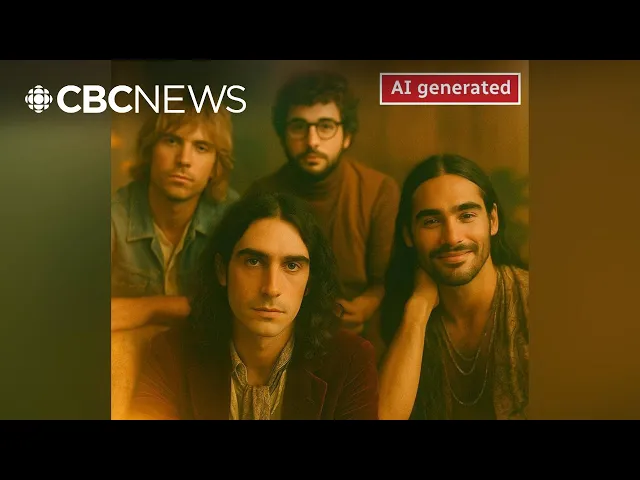AI-generated ‘band’ gains a million monthly listeners

When AI becomes the rockstar
In an industry where authenticity and creative expression have traditionally been prized above all else, artificial intelligence is rapidly redefining what it means to be a musical artist. The recent emergence of Geniux, an AI-generated band that has amassed over a million monthly listeners on Spotify, signals a profound shift in how music is created, consumed, and understood in the digital age. This rise of synthetic performers raises fascinating questions about the future of human creativity in an increasingly AI-dominated cultural landscape.
Key Points
- Geniux, despite being entirely AI-generated with no human performers, has accumulated over one million monthly listeners on Spotify—a milestone many human artists never achieve
- The band's creation involved using AI to generate everything from vocals and lyrics to instrumental tracks and even the visual identities of its fictional band members
- This phenomenon represents a significant evolution in how we define artistry, challenging traditional notions of human creativity and raising questions about what constitutes "real" music
- The success of AI music projects signals a potential shift in listener preferences, suggesting audiences may care more about the end product than the authentic human story behind it
The Artistic Identity Crisis
Perhaps the most thought-provoking aspect of this development is how it forces us to reconsider our fundamental understanding of artistry. For centuries, we've defined music as a deeply human form of expression—a medium through which individuals communicate emotion, experience, and perspective. The success of an AI-generated band challenges this premise at its core.
This paradigm shift arrives at a particularly consequential moment for the music industry. Streaming platforms have already transformed how artists monetize their work, often to their detriment. With AI-generated content now demonstrating commercial viability, we're witnessing the convergence of two disruptive forces that could fundamentally reshape the economics and creative landscape of music production.
Beyond the Video: Deeper Implications
What the video doesn't fully explore is the broader ethical framework we need to establish around AI-generated art. While Geniux represents an impressive technological achievement, it also raises important questions about intellectual property and creative attribution. The AI systems that generated this music were trained on existing human-created works—essentially learning from generations of human artists whose labor and innovation now form the foundation for these synthetic creations.
We should also consider the
Recent Videos
How To Earn MONEY With Images (No Bullsh*t)
Smart earnings from your image collection In today's digital economy, passive income streams have become increasingly accessible to creators with various skill sets. A recent YouTube video cuts through the hype to explore legitimate ways photographers, designers, and even casual smartphone users can monetize their image collections. The strategies outlined don't rely on unrealistic promises or complicated schemes—instead, they focus on established marketplaces with proven revenue potential for image creators. Key Points Stock photography platforms like Shutterstock, Adobe Stock, and Getty Images remain viable income sources when you understand their specific requirements and optimize your submissions accordingly. Specialized marketplaces focusing...
Oct 3, 2025New SHAPE SHIFTING AI Robot Is Freaking People Out
Liquid robots will change everything In the quiet labs of Carnegie Mellon University, scientists have created something that feels plucked from science fiction—a magnetic slime robot that can transform between liquid and solid states, slipping through tight spaces before reassembling on the other side. This technology, showcased in a recent YouTube video, represents a significant leap beyond traditional robotics into a realm where machines mimic not just animal movements, but their fundamental physical properties. While the internet might be buzzing with dystopian concerns about "shape-shifting terminators," the reality offers far more promising applications that could revolutionize medicine, rescue operations, and...
Oct 3, 2025How To Do Homeless AI Tiktok Trend (Tiktok Homeless AI Tutorial)
AI homeless trend raises ethical concerns In an era where social media trends evolve faster than we can comprehend them, TikTok's "homeless AI" trend has sparked both creative engagement and serious ethical questions. The trend, which involves using AI to transform ordinary photos into images depicting homelessness, has rapidly gained traction across the platform, with creators eagerly jumping on board to showcase their digital transformations. While the technical process is relatively straightforward, the implications of digitally "becoming homeless" for entertainment deserve careful consideration. The video tutorial provides a step-by-step guide on creating these AI-generated images, explaining how users can transform...
